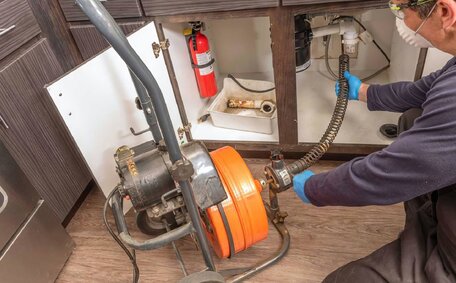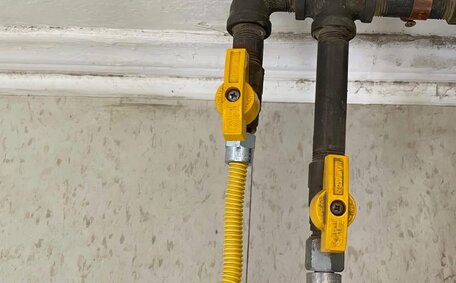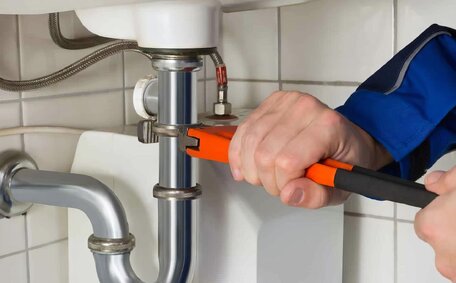Introduction to Gas Work Certifications in Sydney
Mandatory certification and licensing ensure that gas work in Sydney complies with strict safety regulations.
Gas work in Sydney requires specific certifications, such as Certificate III in Plumbing (Gas Fitting) or Certificate IV in Plumbing and Services, tailored to the work type. Securing the appropriate certification, such as Certificate III in Gas Fitting, showcases how professionals amalgamate essential skills knowledge with their qualifications to safely and legally conduct gas installations, servicing, and repair gas jobs.
Licensed gas specialists strictly adhere to gas compliance requirements, ensuring error-free connections. They must provide a copy certificate of their compliance from NSW Fair Trading before commencing any work. The evolving laws and standards highlight the necessity of routine gas testing and the importance of keeping technicians informed through continuous education.
A Certificate III in Plumbing signifies adherence to safety measures via thorough testing and validation of gas systems. Employing a professional plumber does gas evaluation with appropriate certification safeguards residents and circumvents hazardous incidents.
Types of Gas Work Certifications
There are a few main types of gas work certifications required in New South Wales:
Certificate III in Plumbing (Gas Fitting)
Certificate III in Gas Fitting is the main certification for gas fitters working on residential and light commercial gas jobs. It covers skills like:
- Installing, maintaining, and repairing diverse models of gas appliances and their piping systems
- Performing essential gas system tests using industry-standard methods for compliance
- Identifying and responding appropriately to any gas leak and other potential hazards
Certificate IV in Plumbing and Services
Progressing from a Certificate III in gas fitting, the advanced Certificate IV qualification equips individuals to proficiently handle complex gas systems within a range of facilities.
Restricted Electrical Licence
Specialists in maintaining hot water systems with gas-powered electrical elements must adhere to strict regulatory requirements. Compared to the unrestricted electrical licence, this focuses specifically on gas-related electrical work.
Other specialised certifications may be required for certain facilities like nursing homes or childcare centres. Many gas fitters hold multiple certificates to broaden the work they are qualified for.
Gas Fitting Certification
Practitioners must obtain a Certificate III in Gas Fitting or Certificate IV in Plumbing and Services from a recognised institute to operate legally in NSW’s gas fitting sector.
This process includes theoretical learning and practical experience, focusing on correctly testing the working atmosphere under supervision. Core units cover the ability to conduct gas test atmospheres, understand gas safety principles, compliance practises, and respond to gas leaks or administer first aid in other emergencies.
As of 2021, those providing Experts rendering services for medical gas provisions in hospitals and medical establishments necessitate securing an extra NSW Gas Work Licence Class MGO credential. This tightened regulation emerged after reported non-compliances and aims to lift industry standards.
Upon successful acquisition of their qualification, individuals in Sydney NSW who wish to carry out gas fitting work on your gas systems can apply to NSW Fair Trading for their specific licence. Prospective licensees go through identity and criminal record examinations before they partake in a health and safety oriented multiple-choice exam to ensure certificate nsw standards are upheld. Recipients must display their gas work licence number on all advertising to confirm their credentials.
Licensed gas fitters must annually renew their licenses, reaffirming their proficiency within five business days. This ensures they remain well-informed of the evolving legislation, technology and best practices to maintain a safe working atmosphere using approved protocols. Licenced gas professionals must also pass regular audits to out safe proposed work in situations where it applies, ensuring their assured capability.
Plumbing Licenses
Extensive gasfitting and plumbing work mandate specific gasfitting licenses, while a general plumbing license applies to broader plumbing tasks. Both a qualified plumber and licenced gas fitters can install, maintain and repair your gas hot water system, gas pipes and various gas appliances, highlighting the comprehensive plumbing services they provide.
One can only undertake more intricate tasks if certified and experienced as a licensed gas fitter such as testing gas networks, installing complex gas systems for your gas requirements, and issuing gas compliance certificates. Hiring a licensed gas fitter with the correct qualifications ensures compliance and the provision of a gas compliance certificate for the specific work type.
Unlicensed individuals performing plumbing or gas-related tasks poses legal and safety risks. Homeowners face risks and penalties if they use non-compliant handypersons for jobs involving lpg systems or any gas jobs, and may jeopardise insurance coverage.
Compliance Requirements for Gasfitters
Sydney residents should verify that gas fitters comply with NSW Fair Trading’s rigorous safety and certification standards. A gas fitter with a valid work licence is a highly trained professional skilled in precise gas fitting tasks. A Certificate III in Plumbing (Gas Fitting) is essential for our comprehensive range of gas fitting services.
Some key compliance rules gasfitters must follow include:
- Displaying their gas work licence number in all advertising material
- Carrying out work as authorised under their licence class and scope
- Ensuring certificate compliance is met and gas compliance certificates are provided for all completed gas installations
- Affixing a compliance plate to newly installed gas appliances and components
- Undertaking at least 6 hours annually of continuing professional development
- Maintaining appropriate insurance as a licenced tradesperson
- Submitting to auditing of work by NSW Fair Trading
Fines apply for non-compliant gas work. Only licensed gas fitter professionals with the proper credentials specific to the task should be hired. Certification ensures work upholds current safety codes and industry best practices.
Certificates of Compliance and Inspection
A plumber Sydney professional must provide a copy of their gas work licence as compliance certificates upon completing any new gas installation work in a residence or commercial venue. Known as a 'gas certificate’, this documentation demonstrates that rigorous safety testing occurred.
Certificates highlight the certificate inspection process, testing method, and the precise readings take during the gas system pressure evaluation, and more. They confirm that, following a thorough gas test as per standards outlined in Australia’s Plumbing Code AS5601, the gasfitter checked all pipes, appliances, flues and components for correct operation and leaks.
Should any defective elements be discovered during an inspection at your home business, they must be rectified or substituted to achieve a “passed test” status, a prerequisite for newly installed gas systems to legally be carried out in operation. Home business owners should retain the gas certificate for their records and peace of mind.
A professional plumber with gas fitting qualifications must also attach durable aluminium compliance plates on all new gas installations covered under the certificate of compliance. This identifies the gasfitter licence number for future reference.
Compliance Plates
Newly installed gas systems in Sydney require durable aluminium compliance plates affixed by the gasfitter upon completion. These plates prominently feature the gasfitter’s licence number and serve as a permanent form of identification on gas appliances, components and pipework.
Compliance plates indicate that newly fitted natural gas infrastructure has passed required safety checks and testing. Their presence confirms that a certificate of compliance was issued to validate the gas system as legally approved to operate.
By clearly displaying the credentials of the responsible gasfitter, compliance plates enable consumers, future owners and tradespeople to identify who originally installed the gas system. They also allow gasfitters to stand behind their work as documentation of their role in the installation.
Mandating compliance plates aims to uphold accountability and traceability for gasfitting jobs. Home and business owners should check plates are fitted on any new gas systems as proof of compliance.
The Importance of Using Licensed Professionals
It’s essential to engage only licenced professionals for any gas work in your Sydney home or business; doing so ensures the utmost protection of your premises. Using unlicensed handypersons or inexperienced DIYers risks serious safety hazards, gas leaks, explosions and poisoning.
Licenced gas technicians have mastered their craft prior entering the field; they utilise state-of-the-art electronic test apparatus through extensive accredited training, assessment, and registration to verify their competence. They carry full insurance coverage, employ precise using electronic test equipment in measurements, follow stringent safety procedures, and take legal accountability for their workmanship.
Consequences for utilising unqualified individuals can include fines, disconnection from the gas network, and even imprisonment, highlighting the need for gas professionals. Insurance claims may also be jeopardised if non-compliant personnel contribute to property damage or personal injury.
The specialist skills, codes of practise and compliance rigour qualified licenced gas professionals adhere to aims to safeguard homeowners and guarantee installations function reliably. Hiring certified experts remains the wisest, safest path for gas services.
Changes to Gas Work Legislation
There have been recent changes to legislation regarding gas work requirements in New South Wales. As of July 2021, the NSW government has introduced a new licence class MGO specifically for medical gas work in hospitals and healthcare facilities.
This requires a person with specialised training, as it emerged in response to reports of non-compliant medical gas installations by general gas fitters lacking it. The new rule mandates additional qualifications for alterating, installing or repairing piping systems that supply medical gases.
The medical gas licence aims to lift quality standards and reduce risks, ensuring the well-being of vulnerable medical patients by test working gas therapies. It requires gas fitters to complete an accredited course covering the highly specialised nature of medical gas components, accessories and protocols.
This regulatory change intends to uphold safety for critical healthcare infrastructure. It serves as a reminder that gas legislation evolves to address arising issues, so ongoing professional education remains key for licenced technicians.
Safety and Regulatory Standards
Gas work in Sydney must comply with strict safety and regulatory standards to protect consumers, operators and technicians. Key regulations include:
- AS/NZS 5601 - Gas installations standards
- AS 3814 - Industrial and commercial gas-fired appliances
- NSW Gas Supply (Safety and Network Management) Regulation 2013
Compliance is crucial, especially when working conditions involve confined spaces:
- Materials, design, testing, certification and inspection requirements for gas infrastructure
- Risk management provisions for gas networks and facilities
- Licencing and compliance rules for gas tradespeople
- Processes for decommissioning unsafe gas systems
Adhering to the latest codes and standards ensures gas systems and test apparatus function reliably without endangering lives. Updating technical knowledge through CPD allows gas fitters to install and repair apparatus meeting current expectations.
Fair Trading audits, conducted within 5 business days, offer quality assurance that applies situations by identifying non-compliant work. Penalties aim to motivate the industry’s commitment to best practise in safe proposed workit situations.
Qualification Pathways for Gas Workers
To start your career in gas-related fields in Sydney, there are clear training and qualification pathways to obtain certification. The minimum requirement to commence training is that Year 10 secondary school studies or equivalent must be completed.
Certificate III in Gas Fitting courses represent the typical entry point for unit competency, teaching foundation knowledge and skills through a mix of theory and supervised on-site experience. To attain certification, trainees must demonstrate units competency in areas like testing atmospheres, identifying leakage, and minor servicing.
From there, gas professionals can undertake a certificate iv plumbing to expand their scope of work. A Certificate IV in Plumbing and Services develops advanced technical prowess for complex gas systems.
The Restricted Electrical Licence permits the servicing of electronics in gas heating units.
Every qualification requires continuous professional development (CPD) for ongoing education in the industry. This ensures gas workers retain contemporary understanding of codes, safety science and innovations relevant to creating compliant, reliable gas systems.
Licensing Requirements
There are clear licencing requirements for gas workers set by NSW authorities:
- All installation gas tasks warrant a gas work licence, which is issued by NSW Fair Trading, contingent upon the completion of accredited training and the passing of relevant examinations.
- In situations where an individual’s licence must be renewed, it is done annually through continuing professional development education.
- To apply for an initial gas licence, applicants need a Certificate III in Plumbing (Gas Fitting) or Certificate IV in Plumbing and Services, both of which must be fully completed and documented.
- Additional class licences like Restricted Electrical Licence or Gas Work Licence Class MGO are needed for specific gas work.
- Licenses certify gas fitters’ qualifications, skills, and knowledge for safely conducting compliant gas services in various contexts.
It’s paramount to use licenced professionals with expertise in plumbing gas fitting gas to carry out work in the area workspace, as it’s crucial - penalties apply for utilising unqualified handypersons. Licencing aims to guarantee gas systems meet stringent safety codes.
Training Requirements
To be deemed eligible for a gas work licence in New South Wales, professionals need a certificate evidencing their training, individuals must complete extensive accredited training along with a minimum of two years of supervised practical field experience.
At a minimum, trainees undertake a Certificate III level qualification that covers core competency units like:
- Installing, testing and maintaining gas systems
- Discerning perilous conditions and resolving to take actions based on assurance of safety
- Safely handling gas materials and components
- Interpreting technical drawings and standards
- Communicating with clients and colleagues
This knowledge is paired with an apprenticeship involving real onsite gas jobs across various residential, commercial and industrial settings. Recently, additional qualifications were introduced for healthcare facility work.
Upon completing their credentialed education and supervised field experience requirements, candidates can apply for their specific NSW gas licence class. This training pathway aims to produce qualified professionals with well-rounded expertise.
Conclusion
Proper certification is crucial for gasfitting work in Sydney to carry out safe and compliant services. Gas systems involve serious risks in situations where they are handled incorrectly by unqualified personnel. Homeowners and businesses should exclusively hire licensed professionals with current NSW gas work licences.
At Abbotsbury Plumbing, our expert team of licensed gas fitters and plumbers excel in all gas-related services, from installations to complex repairs. For enquiries about our gas services or to request assistance from our licensed gas fitters, contact us at 1300 349 338 or jobs@abbotsburyplumbingservices.com.au.
We remain up to date on the latest standards and legal requirements in the industry.






